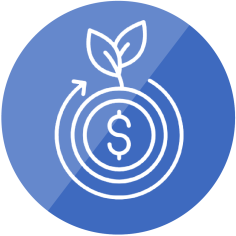
Microeconomics & Sustainability
This course invites students to familiarize themselves with the basic principles of Microeconomics and to discover the close relationship between Microeconomics and Sustainable Development. Its purpose is to provide an understanding of economic concepts and theories, while highlighting their practical application in everyday life. The course enables participants to develop their critical thinking skills through the analysis, evaluation and questioning of current practices, and ultimately, proposing applicable solutions, with the principles of Sustainable Development in mind. The main goal of the course is to develop skills that will allow students to appreciate economic issues in their proper context and to address them in a multidimensional, modern way that promotes Sustainability, while highlighting ways of optimal management of our finite economic resources.
Learning Objectives:
- Analyze the Impact of Market Structures on Sustainable Practices: Students will evaluate how different market structures (e.g., perfect competition, monopoly, oligopoly) influence the adoption of sustainable practices by firms. This includes understanding how market power and competition affect environmental outcomes and resource allocation.
- Assess the Role of Government Policies in Promoting Sustainable Economic Behavior: Students will examine various microeconomic policies (e.g., taxes, subsidies, regulations) and their effectiveness in promoting sustainability. They will learn to analyze the economic incentives created by these policies and their impact on both consumer and producer behavior towards sustainable practices.
- Evaluate the Economic Viability of Sustainable Business Models: Students will explore the economic principles underlying sustainable business models, such as circular economy and green entrepreneurship. They will assess the cost-benefit analysis of sustainable practices and their long-term economic impacts on both businesses and society.
